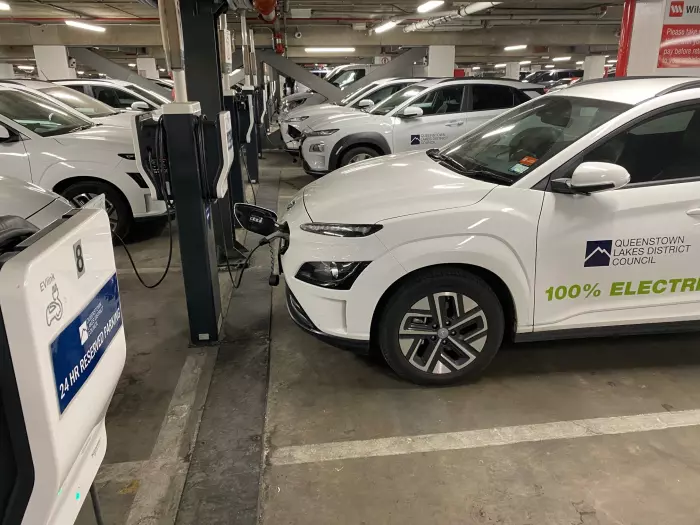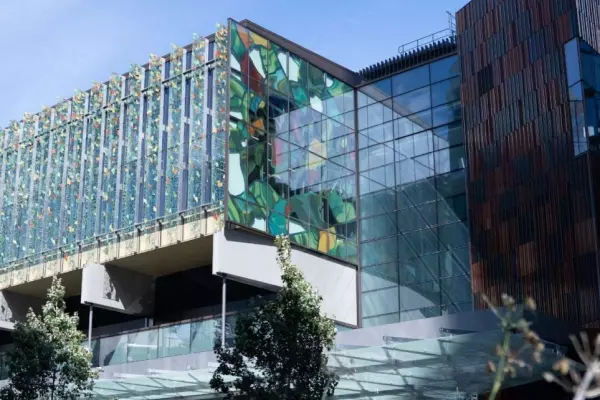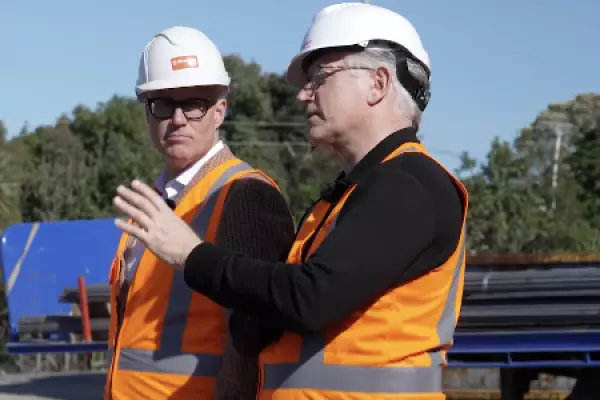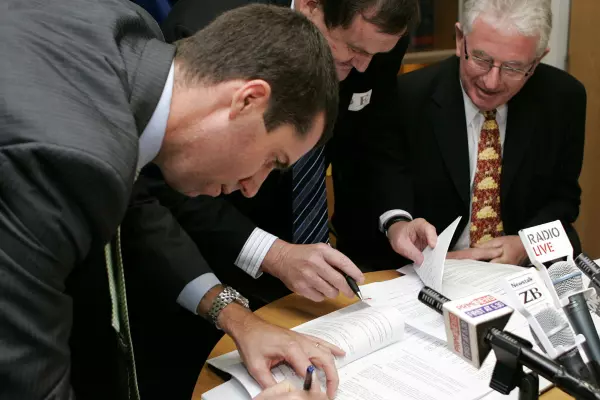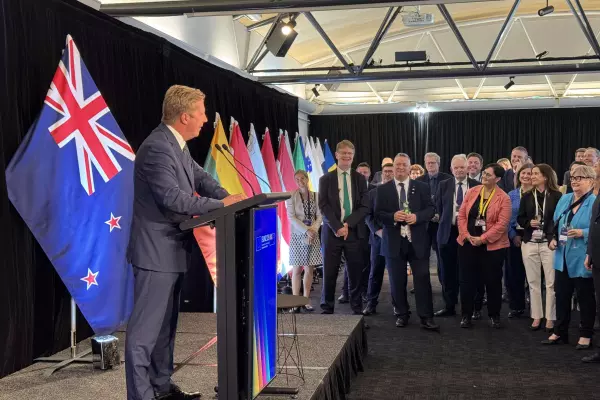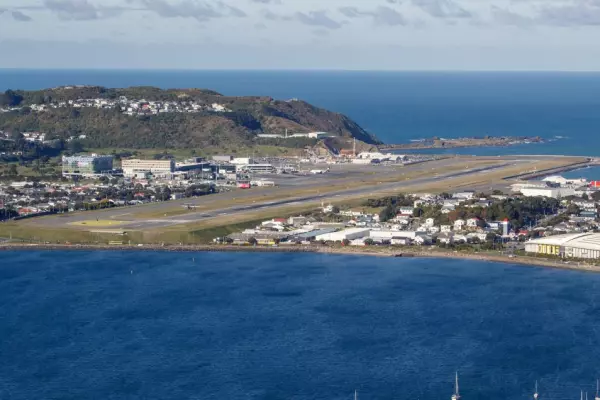Aurora Energy chief executive Richard Fletcher has said the lines company has a clean slate to play catch-up with the fast-expanding demands of its network.
That was, somewhat ironically, after the Commerce Commission rapped the Dunedin council-owned network over the knuckles for “excessive levels of power outages” dating back to 2020, after a series of breaches of its network quality standards.
The company – the seventh-largest of the country’s 29 distribution operators – has 92,000 connections to homes, farms and businesses across Dunedin, Central Otago and Queenstown-Lakes.
The warning, which took two years to issue, came after Aurora had already been fined almost $5 million by the high court for breaches of quality standards from 2016 to 2019, under what was then its default price-quality path.
Those ‘default’ operating key performance indicators (KPIs) set revenue requirements and quality standards for most of New Zealand’s monopoly-run lines operators.
But Aurora failed its reliability threshold before the regulator signed off on its customised price-quality path in March 2021, capping its total investment in the network at $563 million over five years.
Just under 60% of that has been allocated to spending on new assets and the network, with the rest going into operations and maintenance.
That could translate to some Otago households paying as much as 60% more for line charges, though there has been an argument that levels were kept low in the past simply because of a lack of investment in the ageing network.
But the late warning closes a chapter on a rather dark period for Aurora, after years of maintenance neglect left its almost 2,000-kilometre network at risk of multiple failures across its 54,000 power poles, many of them degraded, and its 339 zone substations.
Playing catch-up
The ‘clean slate’ comes during the fifth year of an expensive remediation programme that has seen between 1,400 and 2,000 of its ageing poles and cross-arms replaced every year.
This past year, the company spent a record $127m on upgrade projects. That included replacing overhead lines with submarine cables between Port Chalmers and Portobello on the Otago Peninsula, installation of a new 11 kilovolt line between Alexandra and Clyde in Central Otago and upgrades to the ‘Arrowtown ring’, which also links both major ski fields, the Remarkables and Coronet Peak, near Queenstown.
In Glenorchy, south of Queenstown, the backdrop to a number of Lord of the Rings locations, it's now working to replace more than 100 power poles.
Fletcher, a former general manager at the North Island’s Powerco, took over the reins of Aurora in January 2021 from under-fire chief executive Grady Cameron.
Almost two years later and having ‘weathered the storm’, Fletcher said the company had met all its commitments under the new Commerce Commission deal and was now into a five-yearly inspection circuit of “everything”.
“The fact that we haven’t replaced everything is because we now know their condition, so we’ve moved more into a routine inspection cycle of all substations.”
Capacity
Fletcher said in terms of ‘fleet renewal’, the group was focusing on ‘end-of-life’ related replacement in those urban areas which were seen as “high priority”.
At a higher level, the focus has now shifted to ensuring there's simply enough capacity and capability to accept two-way flows when people want to put power back into the network.
The big issue and what drives investment is times of peak demand, which need to be managed in a controlled way, Fletcher told BusinessDesk.
Growth in the Queenstown-Lakes and Central Otago regions, particularly after new large commercial and residential townships sprang up, such as Frankton and new subdivisions in Cromwell, presents significant extra demands on the network.
One of the biggest challenges will be the move to electric vehicles (EVs), which has been accelerated by the government’s ‘fee-bate’ scheme, as it tries to hit its carbon-reduction targets.
Demand-side management
Aurora’s own asset planning shows that the increase in demand for EVs in the area could be limited to an extra 3% increase in peak demand, but that assumes the use of smart chargers, time-of-use signals and, where needed, tapping into demand-side management.
The government is actively moving the country's transport to electric vehicles, but regulations to make sure the network isn’t overloaded during peak times have lagged behind other countries, including Australia and the UK.
That means there's no onus on owners and users of those cars, including local councils or even government users of large EV fleets, to make sure they use time-of-day charging. With this control method, smart chargers are remotely monitored by the power distributor, which can schedule charging during off-peak, cheaper times.
To meet demand issues, two years ago Aurora started collaborating with Upper Clutha solar provider SolarZero. A pilot project tapped into virtual ‘non-network’ generation, primarily from 640 solar and battery installations supplying about 3.1 megawatts of available power.
A growth area
Fletcher, who lives in Wānaka, said that means Aurora can bring that aggregated power on stream during the brief periods when it’s needed, delaying the prospect of having to build bigger transformers and substations.
According to an Infometrics analysis in 2021, economic growth in the Wānaka region has averaged 5.7% over the past 10 years, more than double the 2.6% growth rate of the national economy over that time. About a quarter of that growth has been driven by construction, accommodation and food services.
“We looked at network investment options and said at some point we need to spend $25m," said Fletcher. "But if we can tap into that local peak here for what are generally only brief winter periods, we won’t need to bring power in from Cromwell.
“Now, that’s proving a concept, really, but it's also providing an actual deferral, with breathing space to decide what to do, and it’s balancing the risk in case growth goes faster than we think.
“That’s why you have these tactical things.”


